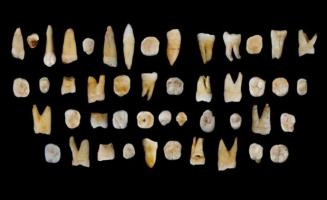Copy Link
Add to Bookmark
Report
Lambic Digest V1 #100

Return-Path: <owner-lambic at hbd.org>
Received: from kingcreole.mr.itd.umich.edu (kingcreole.mr.itd.umich.edu [141.211.14.25])
by gremlins.imap.itd.umich.edu (8.9.3/3.1i) with ESMTP id CAA28714
for <spencer at s.imap.itd.umich.edu>; Sat, 23 Jun 2001 02:42:25 -0400 (EDT)
Received: (from daemon at localhost)
by kingcreole.mr.itd.umich.edu (8.9.3/3.1u) with LDAP id CAA08470; Sat, 23 Jun 2001 02:42:24 -0400 (EDT)
Received: from brew.hbd.org ([63.219.236.210])
by kingcreole.mr.itd.umich.edu (8.9.3/3.1u) with ESMTP id CAA08435
for <spencer at umich.edu>; Sat, 23 Jun 2001 02:42:23 -0400 (EDT)
Received: (from majordom at localhost)
by brew.hbd.org (8.9.3/8.9.3) id BAA32251
for lambic-outgoing; Sat, 23 Jun 2001 01:10:05 -0400
Date: Sat, 23 Jun 2001 01:10:05 -0400
Message-Id: <200106230510.BAA32251 at brew.hbd.org>
From: owner-lambic at hbd.org (Lambic: The Lambic Digest)
To: lambic at hbd.org
Subject: Lambic: The Lambic Digest V1 #100
Reply-To: lambic at hbd.org
Sender: owner-lambic at hbd.org
Errors-To: owner-lambic at hbd.org
Precedence: bulk
Status: RO
owner-lambic at hbd.org
Lambic: The Lambic Digest Saturday, June 23 2001 Volume 01 : Number 100
Lactic Acid
Oud Bruin vs Lambic
Acid Additions
----------------------------------------------------------------------
Date: Fri, 22 Jun 2001 09:06:21 -0500
From: Nathan Kanous <nlkanous at pharmacy.wisc.edu>
Subject: Lactic Acid
Mike Sharp says he finds beers "doctored" with food grade lactic acid to be
one-dimensional. I agree and the lactic acid is also somewhat sharp for
quite a while. I found that the use of Lactobacillus acidophilus was also
somewhat one-dimensional....better than adding acid, but not what I was
looking for.
Incidentally, the gallon of starter wort for the belgian brown is going
pretty well. In a warm water bath around 100 deg F. We'll see what happens!
nathan in madison, wi
------------------------------
Date: Fri, 22 Jun 2001 14:15:31 -0400
From: "Steven Parfitt" <the_gimp98 at hotmail.com>
Subject: Oud Bruin vs Lambic
I had commented that I was wishining to make an Oud Bruin (copy of
Rhodenbach Gran Cru) as my first attempt at a pLambic and was advised that
the Oud Bruin was not strictly a Lambic.
Isn't it a subclass of lambic?
After reading "Belgian Barm & Barrels" and "Going Sour on German Beer", I'm
more confused than ever.
What distinguishes a Lambic from these other beers? Why is R. Gran Cru not
"Strictly" a Lambic.
Not out to flame, just gettting real confused. (just out of leg surgery and
the pain killers don't help me think straiaght. Think I need to lay off them
and have a good beer instead!)
Steven
JC TN
thegimp.8k.com
_________________________________________________________________
Get your FREE download of MSN Explorer at http://explorer.msn.com
------------------------------
Date: Fri, 22 Jun 2001 21:19:27 -0500
From: james r layton <blutick at juno.com>
Subject: Acid Additions
This message is in MIME format. Since your mail reader does not understand
this format, some or all of this message may not be legible.
- ----__JNP_000_5a92.6285.6683
Content-Type: text/plain; charset=us-ascii
Content-Transfer-Encoding: 7bit
>...and just to stir the pot a bit, I've always found beers which were
doctored
>with pure lactic acid to lack complexity. Sure, the acid is there but
the flavors
>of the beer aren't well blended/integrated. I've always wondered if the
addition
>of a little acetic would help this.
Reminds me of the time that I split a batch of witbier at bottling. Half
of five gallons got a dose of 6 ml 88%lactic acid, half got a dose of
lactobacillus delbrueckii culture. The acid-dosed batch was carbonated
and ready to drink in about three weeks, and the acid did seem to be out
front in the flavor at that time. By the time (2-3 months) that the
culture-dosed batch reached approximately the same level of sourness,
the acid-dosed batch had mellowed some. Side by side, the culture-dosed
beer seemed to be a bit more complex and mellow but the difference was
quite small. These weren't strongly sour beers, and I expect the
difference would be more pronounced in a beer as sour as, say, Rodenbach
Grand Cru. Still, it convinced me that the pure lactic acid was certainly
acceptable for witbiers.
And speaking of adding acetic acid, I toured the Celis brewery last
summer. When asked if they added lactic acid to their witbier, the head
brewer responded that they did not use lactic acid, they used glacial
acetic acid in both the White and the Grand Cru. I haven't tried this at
home yet, not sure where to get the glacial acetic. I suppose that
regular old white vinegar might work as well.
Jim Layton
- ----__JNP_000_5a92.6285.6683
Content-Type: text/html; charset=us-ascii
Content-Transfer-Encoding: quoted-printable
<!DOCTYPE HTML PUBLIC "-//W3C//DTD HTML 4.0 Transitional//EN">
<HTML><HEAD>
<META content=3D"text/html; charset=3Diso-8859-1" http-equiv=3DContent-Type>
<META content=3D"MSHTML 5.00.2614.3500" name=3DGENERATOR></HEAD>
<BODY bottomMargin=3D0 leftMargin=3D3 rightMargin=3D3 topMargin=3D0>
<DIV>>...and just to stir the pot a bit, I've always found beers which =
were=20
doctored<BR>>with pure lactic acid to lack complexity. Sure, the =
acid=20
is there but the flavors<BR>>of the beer aren't well=20
blended/integrated. I've always wondered if the addition<BR>>of a=
=20
little acetic would help this.</DIV>
<DIV> </DIV>
<DIV>Reminds me of the time that I split a batch of witbier at =
bottling.=20
Half of five gallons got a dose of 6 ml 88%lactic acid, half got a dose of&=
nbsp;=20
lactobacillus delbrueckii culture. The acid-dosed batch was carbonated=
and=20
ready to drink in about three weeks, and the acid did seem to be out front =
in=20
the flavor at that time. By the time (2-3 months) that the=20
culture-dosed batch reached approximately the same =
level of=20
sourness, the acid-dosed batch had mellowed some. Side by side, the=20
culture-dosed beer seemed to be a bit more complex and mellow but the =
difference=20
was quite small. These weren't strongly sour beers, and I expect the=20
difference would be more pronounced in a beer as sour as, say, Rodenbach =
Grand=20
Cru. Still, it convinced me that the pure lactic acid was =
certainly=20
acceptable for witbiers.</DIV>
<DIV> </DIV>
<DIV>And speaking of adding acetic acid, I toured the Celis brewery =
last=20
summer. When asked if they added lactic acid to their witbier, the =
head=20
brewer responded that they did not use lactic acid, they used glacial=
=20
acetic acid in both the White and the Grand Cru. I haven't tried this =
at=20
home yet, not sure where to get the glacial acetic. I =
suppose=20
that regular old white vinegar might work as well.</DIV>
<DIV> </DIV>
<DIV>Jim Layton </DIV>
<DIV> </DIV>
<DIV> </DIV></BODY></HTML>
- ----__JNP_000_5a92.6285.6683--
------------------------------
End of Lambic: The Lambic Digest V1 #100
****************************************
************************************************************************
You are subscribed to the Lambic Digest mailing list. Our
subscribe system prevents someone else from subscribing you, so you got
here on your own.
To post a message to the list, please send it to lambic at hbd.org.
To unsubscribe, send the word "unsubscribe", without the quotes, to
lambic-request at hbd.org. For a list of other useful commands, send the
word "help", less the quotes, to lambic-request at hbd.org.
Comments or questions related to the operation of this list should be
directed to lambic-owner at hbd.org




















